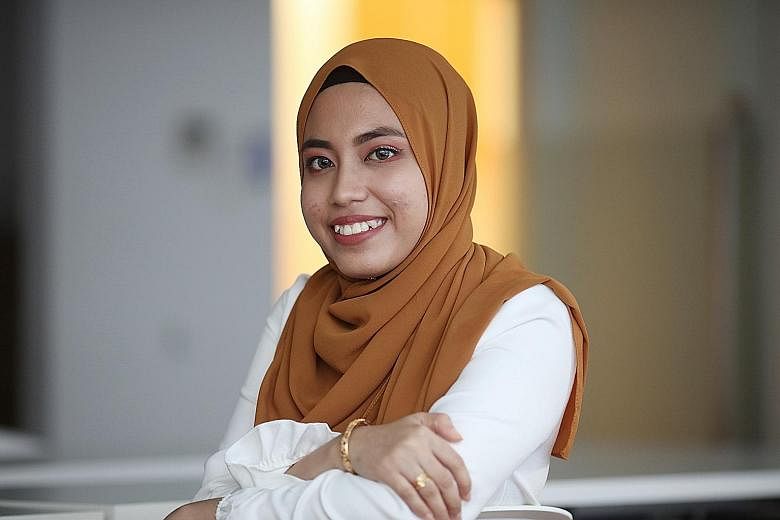Singapore Polytechnic student Noor Syafizah Mahadi is just 20, but can already call herself a lifesaver.
In June, she donated her bone marrow to an unrelated leukaemia patient living overseas, making her among the youngest donors from the Bone Marrow Donor Programme (BMDP) - the only local bone marrow donor registry here.
Without the life-saving procedure, the patient's chances of survival were slim to none.
Recalling that fateful phone call from BMDP in March, Ms Syafizah said: "I was revising for my exams at that time and was in shock because I forgot I had joined the register."
Initially reluctant because she thought it would be painful, she steeled herself to go ahead with it because of strong support from her friends and family. Her friends told her she was doing a good deed, and her parents were by her side during the half-day procedure.
"It was actually only a little painful," she said.
Today, which is World Marrow Donor Day, she is joining BMDP to call for more people of minority races to become donors.
Of the 81,543 donors on BMDP's register, just 8 per cent are Malays and 7 per cent are Indians.
The odds of finding a bone marrow match outside of a person's family are one in 20,000. A match is more likely to be found within the patient's own racial group.
"Having so few Malay and Indian donors on the register means that these patients are robbed of that one last chance, simply because of their race, and this is something that can definitely be changed if only more (Malay and Indian) people step forward," said BMDP chief executive Jane Prior.
The main reasons people hesitate are misconceptions, such as how a donor will be weak for the rest of his life and that it could affect fertility. For some Muslims, there is the concern that it might be against their religion, Mrs Prior said.
In fact, a person recovers fully within a week when the body replenishes its own bone marrow.
Ustaz Tarmizi Wahid, founder of the Safinah Institute, a centre for Islamic education, said: "There is nothing in the bone marrow donation process that goes against any of the principles of Islam. In fact, it's quite the opposite. There are numerous verses in the Quran and Islamic tradition which encourage people to go out of their way to help people in need and save lives."
Ms Syafizah's father, delivery driver Mahadi Daon, 52, said he is immensely proud of his daughter.
"I will again give her my full support if she gets another call to be a donor," he said.

